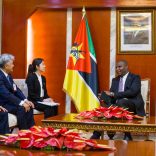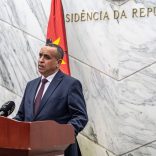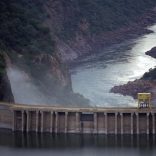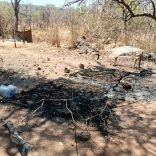Mozambique: Daewoo interested in investing in natural gas projects in the Rovuma basin
Mozambique: Tanzania gas plans add pressure for progress in country’s own – NGO

in file CoM
The Centre for Public Integrity (CIP), a Mozambican non-governmental organisation (NGO), said this Friday that Tanzania’s announcements about investments in natural gas put pressure on Mozambique, and that the country should accelerate its projects without jeopardising principles.
“To maximise gains from gas, Mozambique must move forward urgently”, because “competition with Tanzania in the sector reduces the window of time” for the country “to operationalize its projects”, an analysis by economist Rui Mate published by CIP reads.
The Tanzanian government has announced that it expects to sign agreements this month with oil companies Shell and Equinor to develop a liquefied natural gas (LNG) project off the country’s coast worth about US$42 billion (€39 billion).
READ: Tanzania to review approval of $42 bln LNG project in June
The final investment decision (FID) is scheduled for 2028, which puts the start of exploitation for after 2030.
In Mozambique, of the three LNG projects in the Rovuma basin expected to boost the country’s economy, only the smallest – a floating platform – is active.
Regarding the two largest, with a combined volume of investment similar to that of Tanzania, the project led by TotalEnergies was suspended in 2021 in mid-construction by armed attacks in Cabo Delgado, while the one led by ExxonMobil is being reconfigured, still with no final investment decision (FID) made.
“The Tanzanian gas project undoubtedly represents competition for Mozambican projects,” economist Rui Mate notes, stressing that the sector “represents the light at the end of the tunnel for Mozambique to, in the short term, experience structural transformations in terms of economic and social development”.
The economist considers that “Tanzania’s competitiveness could stimulate the spirit of survival and the need for Mozambique to stand out in the hydrocarbon market, which could play an important role in the operationalization of the projects”.
In short, “the government and companies will feel pressured by the possibility of losses if there is no advance in good time”.
Faced with this pressure, Rui Mate identified three risks to be mitigated.
Firstly, he considered it necessary to improve “crucial aspects of security and human rights”, secondly, to avoid, by way of facilitation, “negotiating benefits for the state in a short-term view”, and, finally, to reinforce “levels of transparency”.













Leave a Reply
Be the First to Comment!
You must be logged in to post a comment.
You must be logged in to post a comment.